S&P 500: Volatility Levels Suggest There Isn’t Much Left to Gain
Stocks were up pretty big yesterday, at least on the surface, with the rising by 63 basis points. However, when we look at the market overall, the volume of was very weak, with just 1.1 million contracts traded.
Based on preliminary data, that’s easily one of the lowest volume days since around December 30. On the , just over 39 million shares traded and had one of the lightest trading days since Christmas Eve.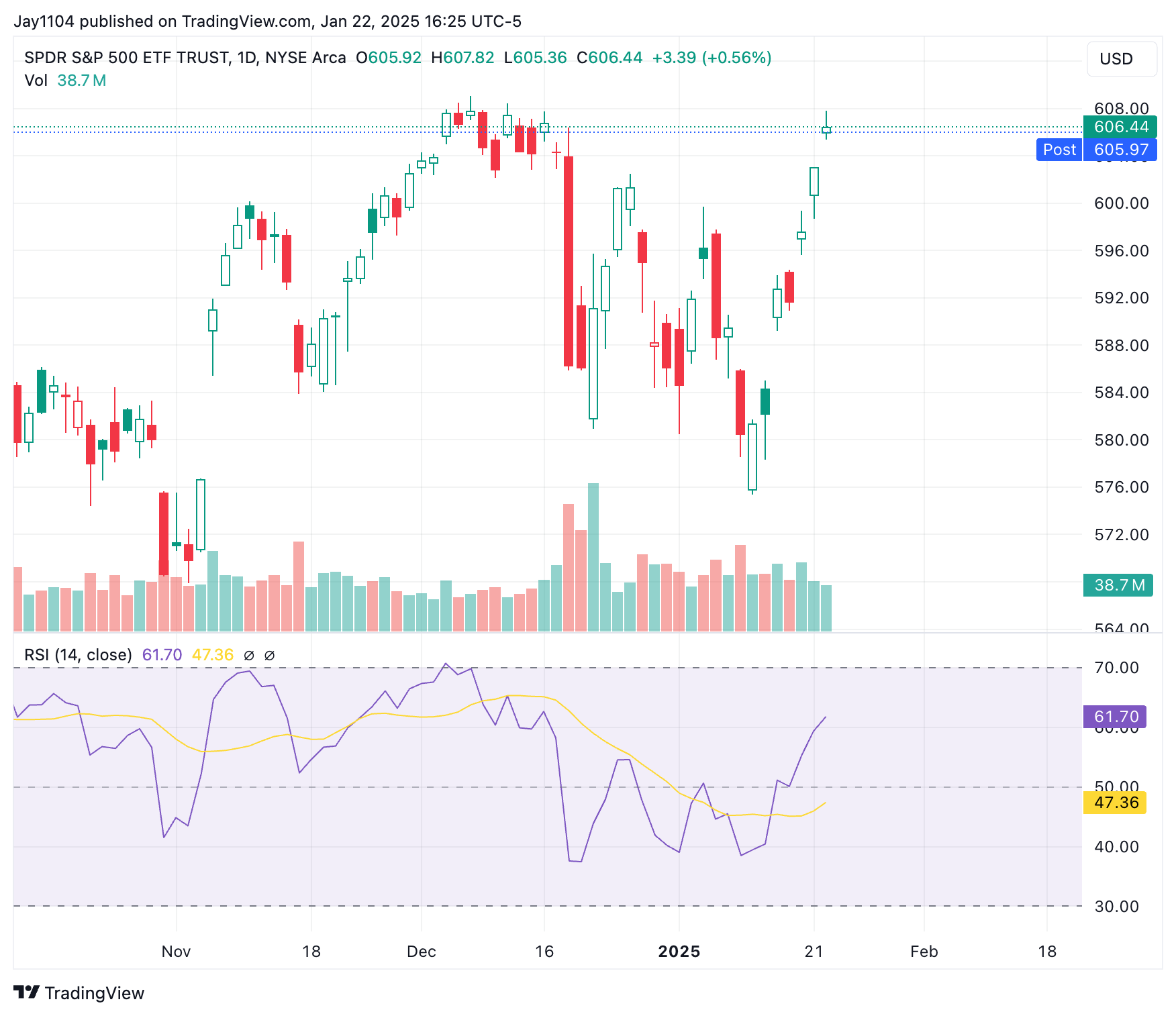
On the Bloomberg 500, which reflects the S&P 500, 305 stocks declined, 193 rose, and three were unchanged. Nvidia (NASDAQ:) and Microsoft (NASDAQ:) accounted for 86% of the day’s gains, with Nvidia contributing 45% and Microsoft 41%. Amazon (NASDAQ:) contributed 12%, and Netflix (NASDAQ:) 11%. Essentially, four stocks contributed nearly all of the day’s gains.
(BLOOMBERG)
Meanwhile, the , an equal-weighted S&P 500 index ETF, finished the day down nearly 40 basis points. This highlights that while the broader market appeared strong, the gains were concentrated, and things weren’t as robust beneath the surface. The RSP has stalled at the 61.8% retracement level.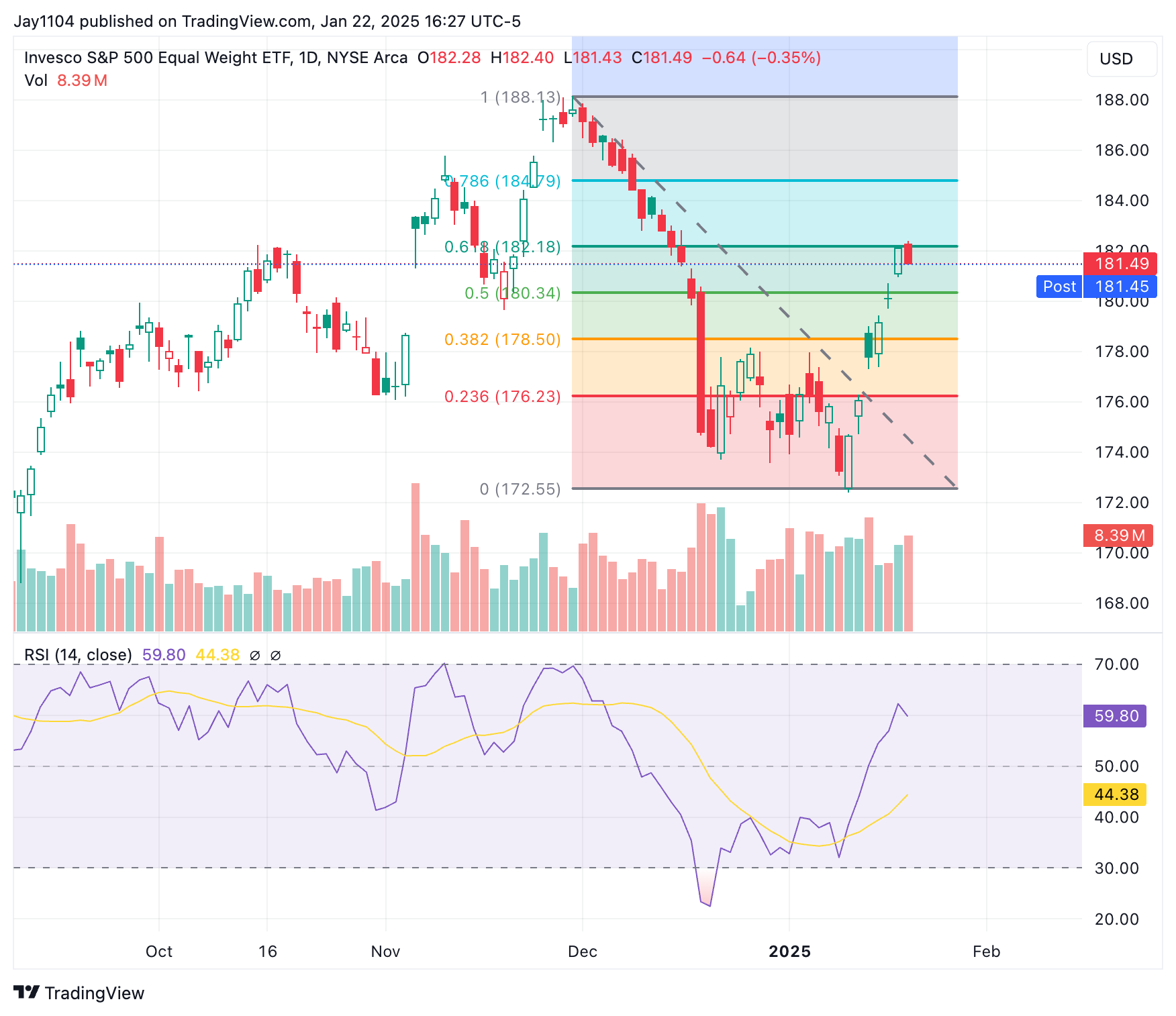
Volatility metrics also signaled weakness. The rose, and the VVIX increased by about two points to close at 100. Interestingly, the VIX 1-Day—a short-term volatility measure—was at 22.5 on January 14 but closed at 9.9 yesterday. This suggests a mechanical reset in implied volatility has primarily driven the recent S&P 500 rally.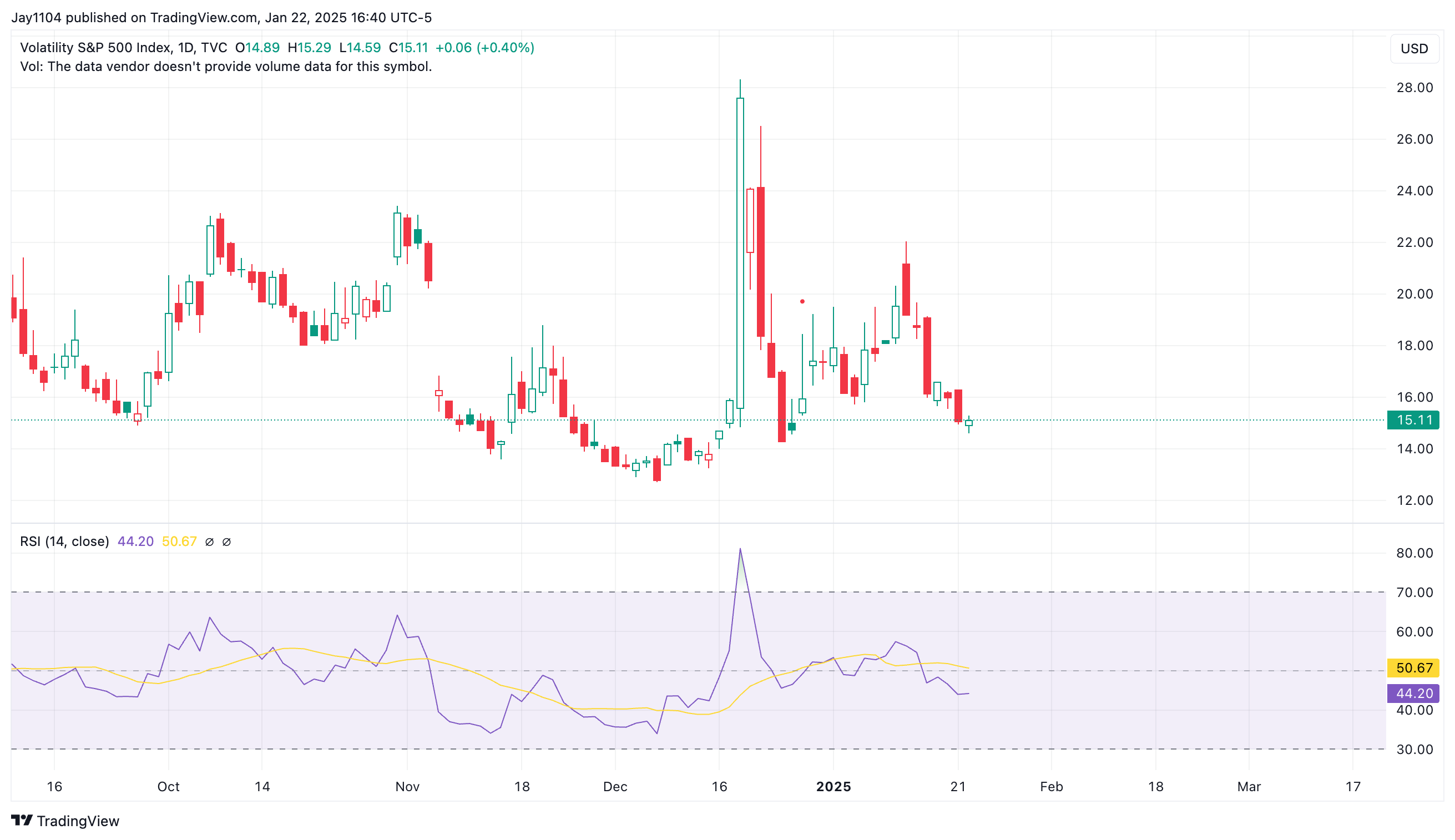
Before the December 17 VIX -1 day spike (one day before the Fed meeting), the VIX 1-Day had been bottoming around five each morning and topping at nine. This indicates limited downside for the VIX 1-Day in the near term, especially with major events like the meeting, , , Fed/ECB meetings, and significant earnings reports in the coming days.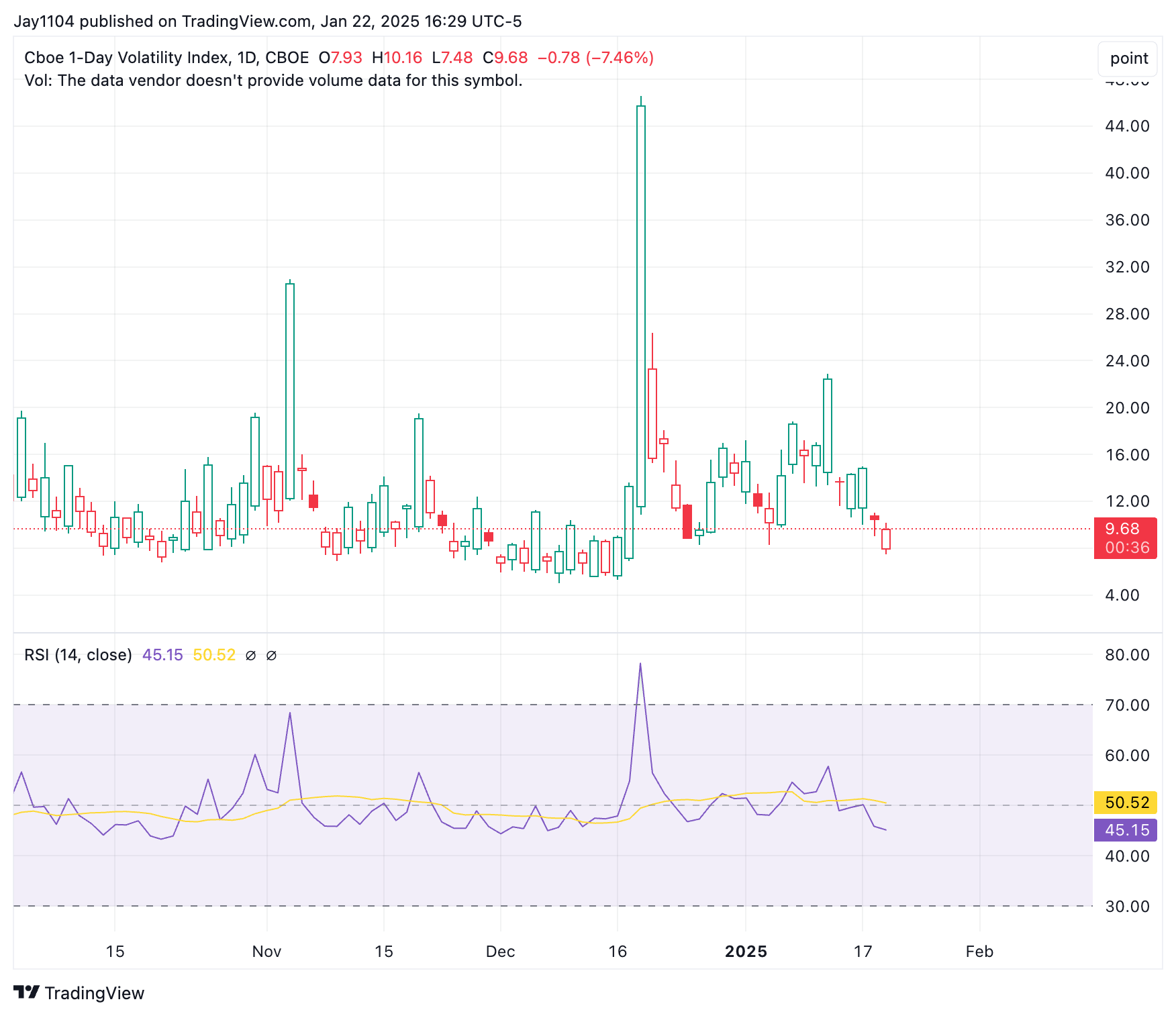
The implied correlation index, which closed yesterday at 8.19, is historically low, having only been lower once in 20 years (July 2024). This suggests limited room for downside in implied correlation, meaning the S&P 500 may struggle to rally much further if recent moves were primarily mechanical.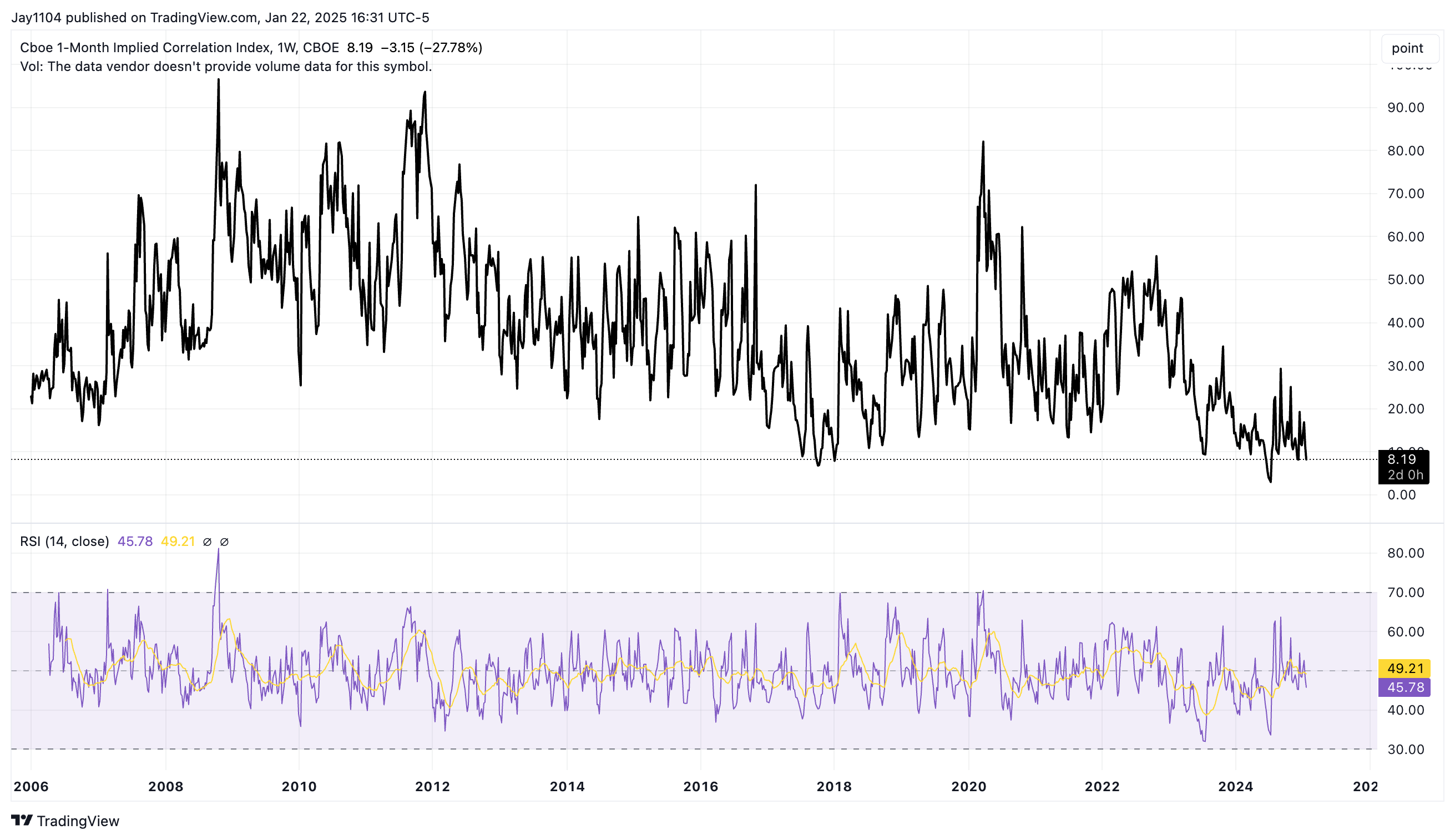
Treasury yields increased yesterday, with the rising four basis points to 4.61%. The yield was up 4.5 basis points, while the rose only two basis points. The 10-year has bounced off support at 4.52%.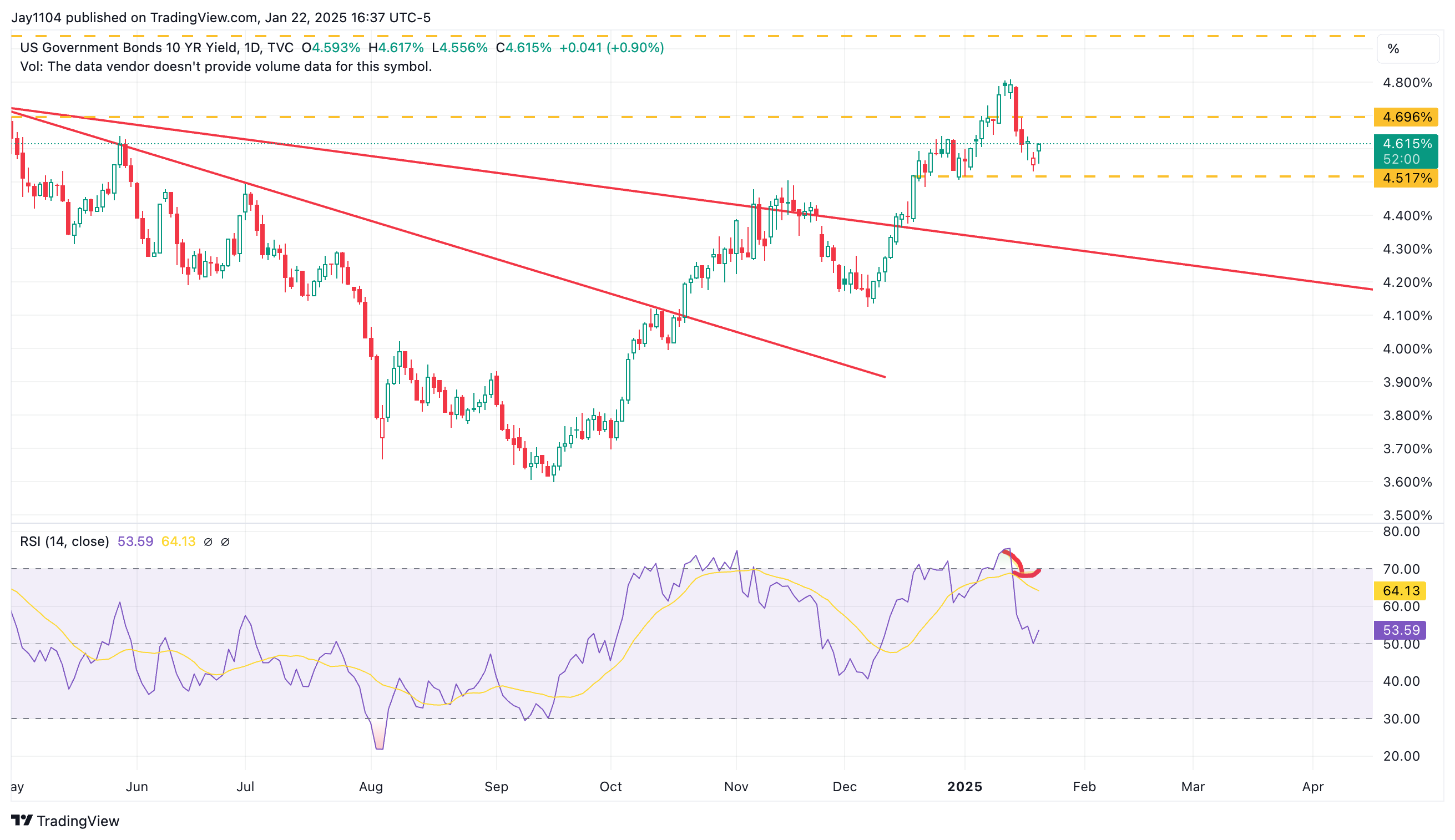
Inflation swaps for January, February, and March haven’t changed. But the 2-year inflation swap has dropped some. The Recent moves in 2-year inflation swaps seem tied to oil prices, with oil driving the earlier rise this month and the more recent drop.
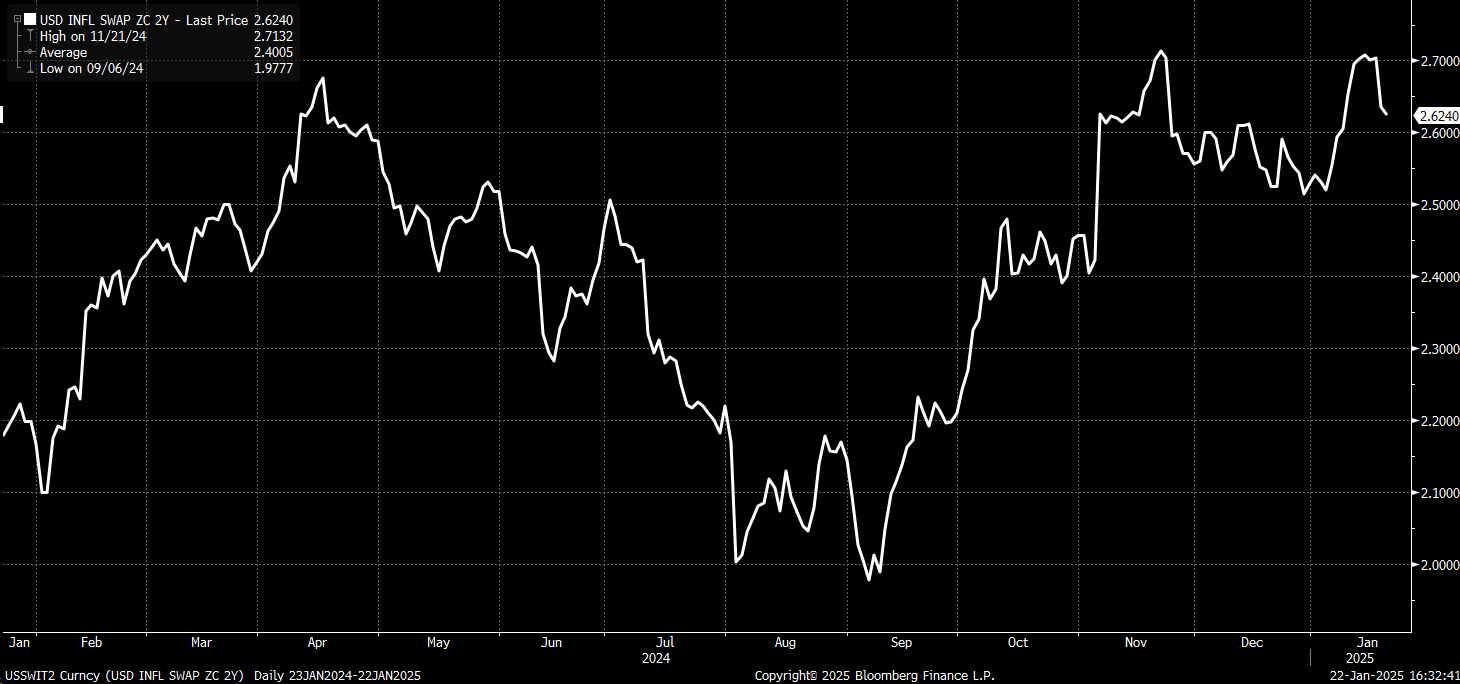
***
#Volatility #Levels #Suggest #Isnt #Left #Gain
